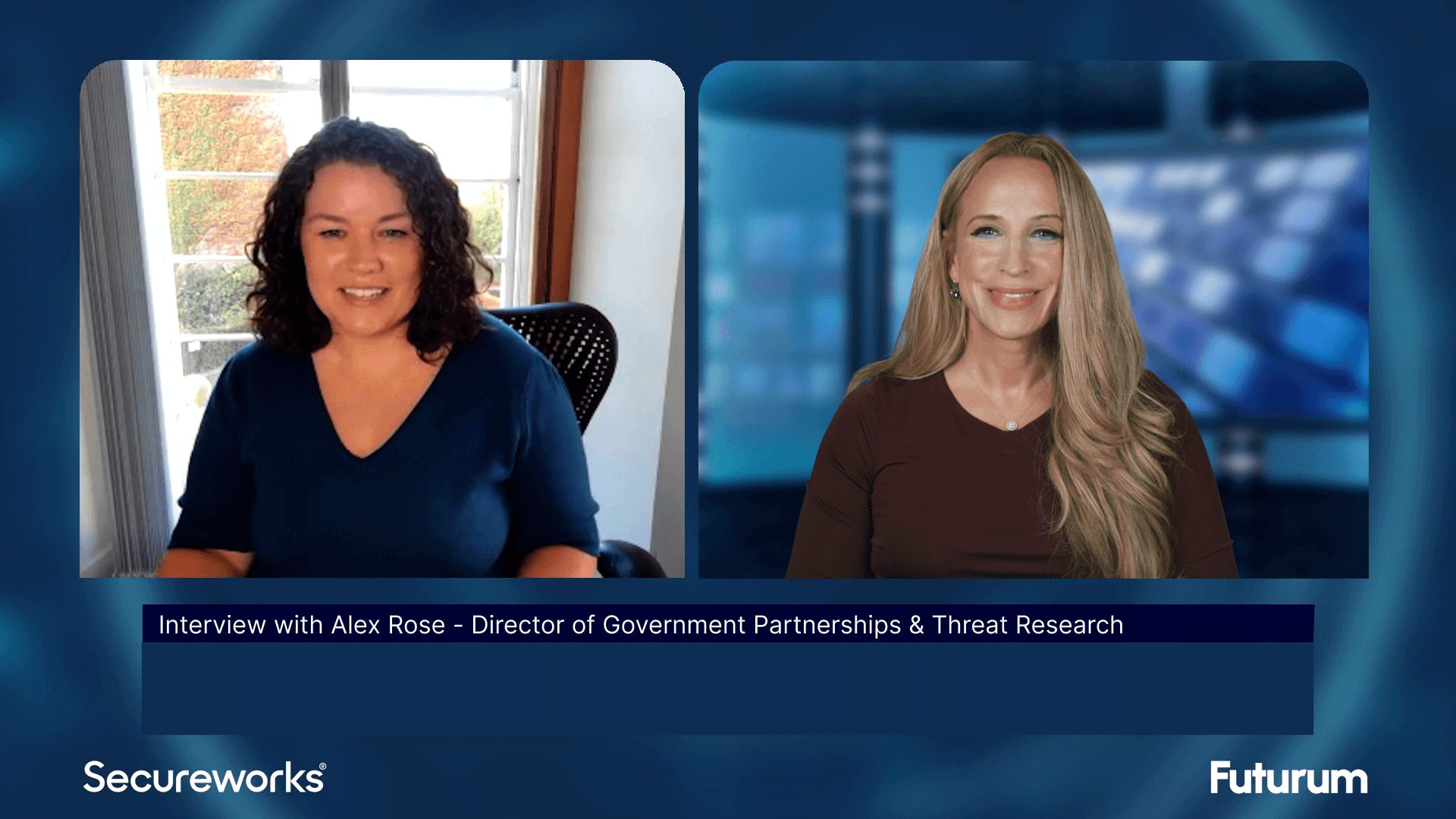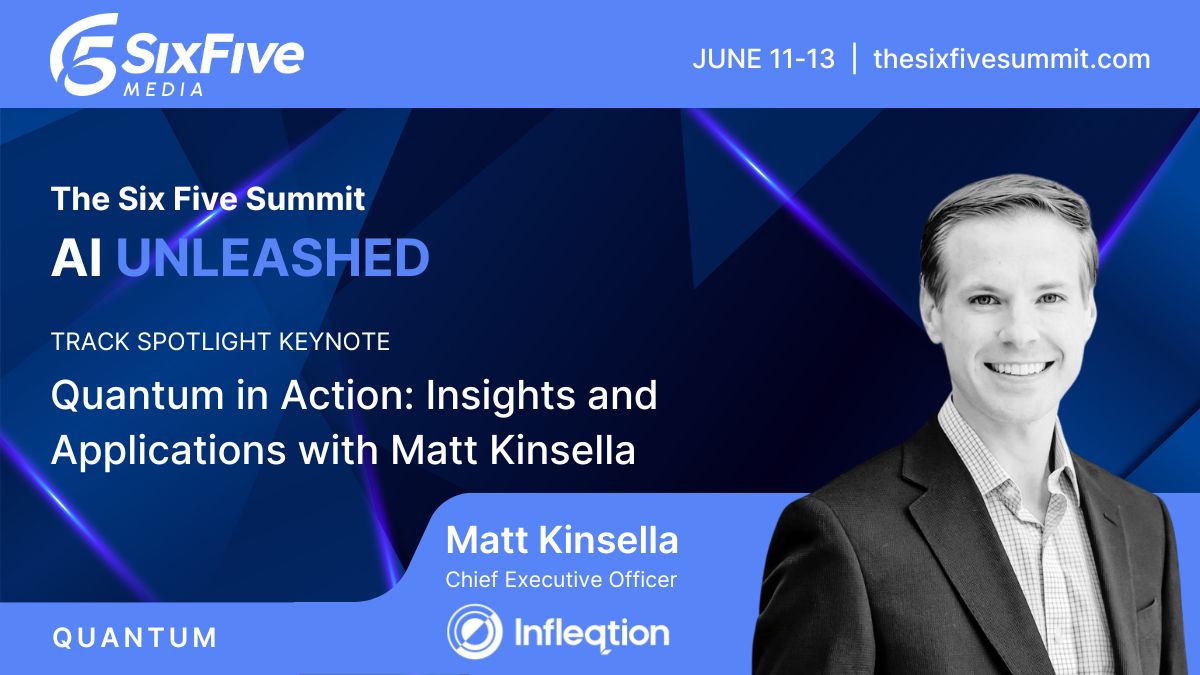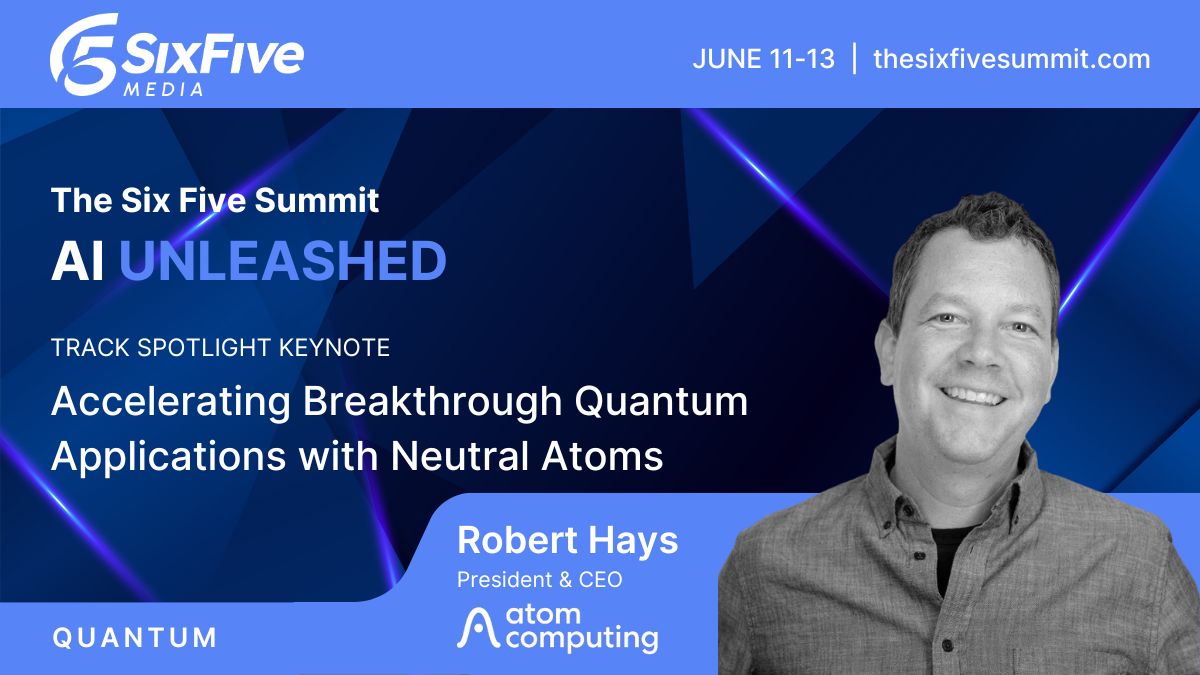Home
Proactive Mainframe Performance Management: How Hybrid AI-Guided Remediation and AI Agents are Improving Operations
Proactive Mainframe Performance Management: How Hybrid AI-Guided Remediation and AI Agents are Improving Operations
Anthony DiStauro and Liat Sokolov from BMC Software join Mitchell Ashley to discuss Hybrid AI-Guided Remediation's revolutionary role in modernizing mainframe operations, highlighting practical examples and the technology's impact.
The mainframe remains critical, but its complexity is exploding. How do we keep up? Host Mitch Ashley is joined by BMC Software's Anthony DiStauro, R&D Solutions Architect, and Liat Sokolov, Principal, Product Management, for a conversation on how Hybrid AI-Guided Remediation and AI Agents are revolutionizing mainframe operations. It's not just about generative AI or machine learning alone. Hybrid AI intelligently combines these and other techniques, choosing the right AI for the right problem.
Key takeaways include:
🔹The Hybrid AI Advantage: Hybrid AI is revolutionizing how we manage mainframe systems. It provides a more intelligent and efficient approach to AIOps, moving beyond traditional methods.
🔹Faster detection, clearer explanations: Hybrid AI enables quicker identification of performance issues and provides clear, concise explanations of their root causes. This speeds up troubleshooting and reduces downtime.
🔹AI agents working together to solve complex problems: AI agents can collaborate and communicate with each other, leveraging their individual expertise to address complex operational challenges. This collaborative approach enhances problem-solving capabilities.
🔹Real-world case studies: AI Agents are shown to be effective in reducing Mean Time to Repair (MTTR) and preventing costly downtime. Learn more at BMC Software.
Watch the video above, and be sure to subscribe to our YouTube channel, so you never miss an episode.
Mitch Ashley:
Welcome to Six Five on the Road. We're here at the Old Hickory Restaurant at the Gaylord in Washington D.C. talking about tech, talking about some great topics here. My name is Mitch Ashley with Six5Media and I'm joined by a couple of folks from the BMC organization. Anthony DiStauro.
Anthony DiStauro:
Yes, that's correct.
Mitch Ashley:
And also Liat Sokolov. Hi, good to be chatting with you.
Anthony DiStauro:
Thanks for having us.
Mitch Ashley:
You know, it's the age of AI, so we got to talk about AI. We'll just bring it up right up, right up front.
Anthony DiStauro:
Absolutely.
Mitch Ashley:
Mainframe environment critical to running business applications, performance issues, all kinds of things that we need to triage. I know you have. Hybrid AI is something new. Combining generative AI, machine learning, and a whole number of technologies. Talk about how that's helping us with those challenges.
Anthony DiStauro:
Yeah, absolutely, yeah. So as the mainframe environment keeps increasing in complexity and size. Right. Mainframe space is growing. You know, we're looking to apply AI techniques in a variety of different areas, especially in the AOPS space. But what approach do we take to that? What is the best approach to solving these particular problems that we have in the AI space? So at some point people are looking at rule-based AI systems, machine learning. Then generative AI came onto the scene, and it was a mad rush to generative AI. Maybe, you know, that's going to help. But at the end of the day, what it comes down to, it's not just one particular AI technique that is going to solve our problems. We got to take a step back and look at the problem through the lens of the different AI techniques that are available and learn to pull these different techniques together, tie them together. That's what we're calling Hybrid AI. It's leaning on the best techniques that we have and then applying that. And we're actually doing that with BMC AmyOps insight. It's one of our products that is using Hybrid AI to solve some pretty complex problems in the AI space.
Mitch Ashley:
Choose the best parts of AI for what they're best at.
Anthony DiStauro:
Absolutely, yeah.
Mitch Ashley:
Talk a little bit about the performance monitoring part of this and sort of the response element of, you know, we're past the days of alerts and alarms and much more sophisticated responses we have to have.
Liat Sokolov:
Yeah. So if up until now we've seen the traditional AI comes into play, we're thinking about those predefined thresholds or relying on experts, then the Hybrid AI comes into play where we blend the good of all. So we do have the rule based systems in place, we have the machine learning models. To predict and help us diagnose and classify what are the problems. And generative AI comes into play where explaining all of those complexities in a very plain language. So with AmyOps Insight, I'm sorry, with BMC AmyOps Insight, we already have the rule based and the machine learning in place, looking at all those ZOs or DB2 event that are happening. And we have recently introduced the explanation of those root cause issues that we can explain in very simple words what is happening. So it's not just understanding the alerts or flagging events, it's also explaining why things are happening and, and even better, what should we do in order to resolve that?Mitch Ashley:
Taking it to the next level. Big help, big help. Talk about AI agents. That means a lot of things to a lot of people. You kind of have to like define terms these days in the context of operations performance, things like that. Talk to us about the approach that.
Anthony DiStauro:
Goes back to what I was saying before. Our environments are getting so complex, right, and so large that there is gaps, especially in the monitoring area. And how do we fill those gaps? We have domain expertise challenges in the mainframe space and how do we overcome that? So, you know, we take a step back and we're like, well, how can we look at AI agents as a true workforce to help us? It's not to replace us by any means in this space, it's to augment our skills. It's to help augment the next generation that's coming into our space. So we can take a step back and look holistically across our monitoring space and what we want to do. We can start identifying AI agents that we can stitch together to help with workflows or processes that we want to put in place. The nice thing about AI agents is that they're reusable. As we identify new work workflows or new processes that we want to put in place, we can draw on the expertise of each of these agents in their respective areas and stitch them together in new ways and then you combine that with Hybrid AI. So if we look at AI agents as this living, breathing entity, an expert that we're deploying into our AIOps environment, the internal implementation representation of those AI agents will utilize Hybrid AI techniques. And the most important thing is they all can work with one another, communicate with one another, lean on one another for assistance in this environment. And again, truly augmenting someone's abilities in.
Mitch Ashley:
The AI space, exciting times, amazing work we can do. Now just think where we'll be six, 12 months from now. Talk about the meantime to repair. We're obviously looking for stability from our systems. There's processes that we have to use to help when we need to respond. Talk a little bit about how Hybrid AI fits into that.
Liat Sokolov:
So yeah, we can think about Hybrid AI as a helper in reducing this. Meantime, to repair where we have those agents that Anthony just mentioned to continuously monitor everything that is happening and when something happens it can provide these clear explanations and also the remediation. So imagine that instead of going through complex logs, hours and hours of digging into that, you can just harness the power of the Gen AI to make sense of everything. Shorten the time that you go through detection to detect what's happening. Also the Generative AI and the AI agents can also offer the next steps to remediate and even create a script for you if you want to run that and resolve that.
Anthony DiStauro:
So I just want to add something to what you were saying there. It's a really good point. I'm almost looking at this in a three phase approach with AI agents coming onto the scene, the MTTD reducing that detection time MTTR as Liette was just describing. But it's also the communication aspect of that, right? So if we get to a point where we got a true agentic environment where the agents are doing their roles of responsibility at the very end of that, to summarize everything that happened to communicate that whether it's internal stakeholders, whether it's to customers, we can automate all of this using AI agents to some form or another. So that's really what we're looking at is looking at that again, the holistic approach from MTTD, MTTR and then the communication piece and everything that happened in between. And when it comes to the, you know, the MTTR part of that, we're also looking at our agents communicating to your ITSM system. Right. Looking back on history, did we have this type of problem before what was done to resolve that? And so those agents can take action even based on history as we go forward.
Mitch Ashley:
Very good. Well, it's been fantastic talking with you both and appreciate all the great information about Hybrid AI and applying that in our environment. So thanks for joining us for this six five on the road. We'd love to have you subscribe to our content, follow us on social media and of course you can go to SixFiveMedia.com and check out all the great information we have available. We'll talk to you soon.
Other Categories
CYBERSECURITY

Threat Intelligence: Insights on Cybersecurity from Secureworks
Alex Rose from Secureworks joins Shira Rubinoff on the Cybersphere to share his insights on the critical role of threat intelligence in modern cybersecurity efforts, underscoring the importance of proactive, intelligence-driven defense mechanisms.
quantum

Quantum in Action: Insights and Applications with Matt Kinsella
Quantum is no longer a technology of the future; the quantum opportunity is here now. During this keynote conversation, Infleqtion CEO, Matt Kinsella will explore the latest quantum developments and how organizations can best leverage quantum to their advantage.

Accelerating Breakthrough Quantum Applications with Neutral Atoms
Our planet needs major breakthroughs for a more sustainable future and quantum computing promises to provide a path to new solutions in a variety of industry segments. This talk will explore what it takes for quantum computers to be able to solve these significant computational challenges, and will show that the timeline to addressing valuable applications may be sooner than previously thought.







